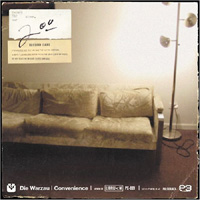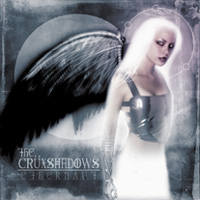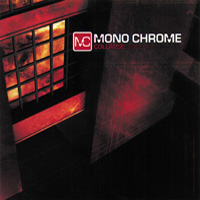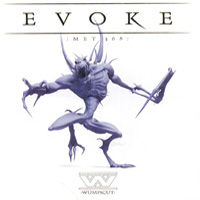 Die Warzau
Die Warzau
Convenience (Pulseblack)
by Wa
After a careful listen to Convenience, Die Warzau‘s fourth studio album, released nearly decade after their 1995 release Engine, it becomes clear that this is a band still at the top of their game. Moreover, they’ve expanded their bag of tricks. Between the years 1988 and 1995, when the Chicago-based Wax Trax label ruled the industrial and electronic scene, Die Warzau was at the forefront on a competing label Fiction, creating a new approach to writing and recording electronic music. Their quirky approach would later influence the methods of Sister Machine Gun, Stabbing Westward, Chris Connelly, Gravity Kills, Nine Inch Nails, KMFDM, and other such prominent acts.
To appreciate Die Warzau fully, one needs to understand that Jim Marcus and Van Christie, the founders of Die Warzau, have a background as performance artists in and around the Chicago scene. Their early shows were less about music and more about destruction and visual abandon. While they quickly picked up some impressive musical and engineering skills, they never abandoned their avant garde roots. Some would later call their approach the beginnings of the anti-pop movement. Early success with their first single “I’ve Got To Make Sense” on Billboard‘s dance and college charts pigeonholed them as an “industrial” band, a label that was never accurate for the type of music they record. It’s even more inadequate when used to describe their most recent effort, a mind-bending return to the album format. Convenience weaves effortlessly through many genres and styles, including overt influences of The Beatles, Prince, and The Beach Boys, without ever losing that signature Die Warzau sound.
It opens tentatively, but increases in potency with the passage of each song, further expanding a rich emotional tapestry. It’s so rich that more than a cursory listen is required in order to pick up the slew of sub-text. Along the way, they present some of their familiar industrial sounds as well as crossing over into territories of funky down tempo, ’60s-inspired pop harmonies, trip-hop, rock, and folktronica.
I found “Permission,” “Radiation Babies,” “Curious,” “Gone Chemical,” and the Martin Gore-esque ballad “Kleen” to be particularly interesting songs that nailed the lyrical intent while keeping the ear entertained by a fresh, unexpected approach.
(www.pulseblack.com)



